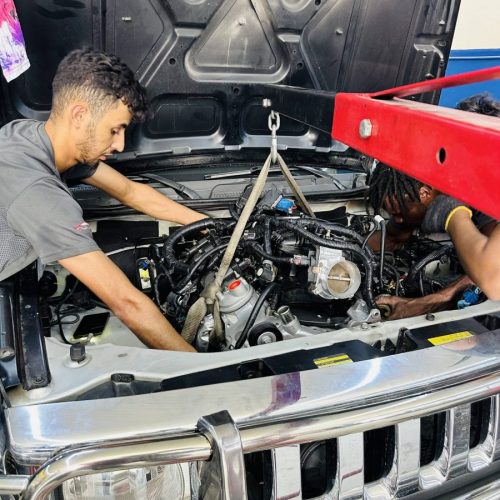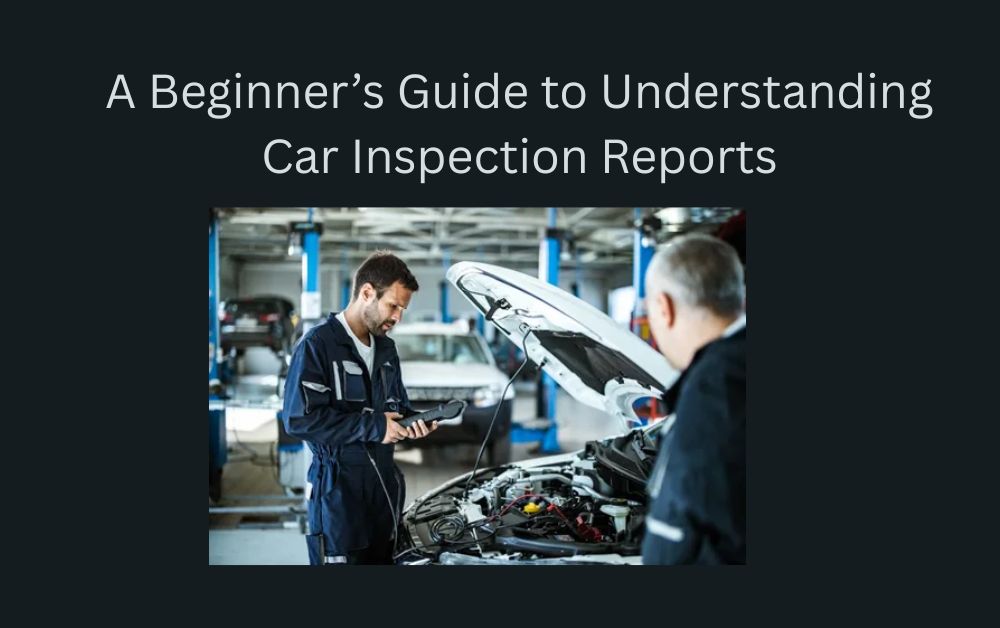Renting a car can bring a lot of freedom during your travels, but it can also come with a bunch of headaches if you’re not careful. From unexpected fees to confusing policies, there are plenty of common mistakes that can turn a simple rental into a hassle. If you’re looking to avoid these pitfalls, especially when considering Lahore rent a car rates, this article will help you navigate the process smoothly. Here are seven common car rental mistakes and how to steer clear of them.
1. Rental Agreement Review
Okay, so you’re standing at the rental counter, keys in hand, ready to hit the road. But hold up! Before you peel out of the parking lot, take a breath and actually read that rental agreement. I know, I know, it’s tempting to just sign and go, but trust me, a few minutes of careful reading can save you a ton of headaches later.
Why is this so important? Because that agreement is a legally binding contract. It spells out everything from the daily rate to the fuel policy to what happens if you scratch the bumper. Ignoring it is like agreeing to something without knowing what it is – and that’s never a good idea.
Here’s what to look for:
- Daily Rate and Total Cost: Make sure the numbers match what you were quoted. Watch out for sneaky extra fees that weren’t mentioned before.
- Mileage Limits: Is it unlimited mileage, or will you be charged per mile after a certain point? Plan your trip accordingly.
- Fuel Policy: Do you need to return the car with a full tank? What are the charges if you don’t?
- Insurance Coverage: What’s covered, and what’s not? Do you need to purchase additional coverage?
- Late Return Fees: What’s the grace period, and how much will you be charged if you’re late?
I once skipped reading the fine print and ended up paying an extra $50 because I returned the car an hour late. Lesson learned: always check the return policy!
And speaking of potential issues, always inspect the rental car for any existing damage before you drive off. Make sure any scratches, dents, or dings are noted on the agreement. Otherwise, you could be held responsible for damage you didn’t cause. Take pictures or videos as proof – it’s better to be safe than sorry!
Don’t be afraid to ask questions! If something isn’t clear, ask the rental agent to explain it. It’s their job to make sure you understand the terms of the agreement. A little bit of due diligence upfront can save you a lot of money and stress down the road.
2. Fuel Policy Understanding
Okay, so you’ve got the keys and you’re ready to roll. But hold up! Understanding the fuel policy is super important to avoid getting hit with surprise charges later on. Rental companies have different ways of handling fuel, and it pays to know what’s what.
Make sure you understand the fuel policy before driving off the lot.
- Full-to-Full: This is usually the best option. You pick up the car with a full tank and you return it with a full tank. Easy peasy. Just remember to actually fill it up before you return it!
- Prepaid Fuel: You pay for a full tank of gas upfront. Sounds convenient, right? But here’s the catch: you don’t get a refund for any unused fuel. So, unless you’re planning on driving until the tank is bone dry, you’re probably better off skipping this one.
- Full-to-Empty: Some companies might let you bring the car back empty, charging you for the fuel. The price per gallon is usually way higher than what you’d pay at a regular gas station. Avoid this like the plague.
It’s always a good idea to take a picture of the fuel gauge when you pick up the car. That way, there’s no confusion about how full the tank was to begin with. Trust me, it can save you a headache later.
To avoid extra fees, consider refueling options.
3. Insurance Coverage Assessment
It’s easy to overlook the insurance aspect when you’re just trying to get on the road, but it’s a big deal. Don’t skip this step! You could end up paying way more than you bargained for if something goes wrong.
A lot of people assume their regular car insurance covers rentals, but that’s not always the case. Take a few minutes to check your policy or call your insurance company. It could save you a ton of money and stress later on.
Here’s what you should think about:
- Do you already have rental car coverage through your personal auto policy car insurance?
- Does your credit card offer any rental car insurance benefits?
- What are the deductibles and exclusions for each option?
It’s also worth noting that rental companies often try to upsell you on extra insurance at the counter. They might make it sound like you absolutely need it, but don’t feel pressured. Take your time, review your existing coverage, and only buy what you actually need. A little preparation can save you from unnecessary expenses and headaches down the road.
4. Pickup and Drop-off Locations
It’s easy to overlook the details of where you’re actually picking up and dropping off your rental car, but trust me, it can make a big difference. I once booked a rental thinking the location was right at the airport, only to find out it was a 20-minute shuttle ride away. Not fun after a long flight!
- Confirm the exact address of both locations.
- Check the operating hours, especially if you have an early morning or late-night flight.
- Factor in travel time between the airport/your accommodation and the rental location.
One-Way Rentals: Convenience vs. Cost
One-way rentals can be super convenient if you’re driving between cities, but they often come with a hefty price tag. Always compare the cost of a one-way rental to the cost of returning the car to the original location, even if it means a bit of backtracking. Sometimes, the extra driving is worth the savings. Ending your rental in another city than planned nearly always incurs costly one-way or out-of-area charges. Rates may double or triple simply for dropping off 50 miles away. Instead, consider one-way rentals, which some companies facilitate for an upfront surcharge.
Off-Airport Locations: Potential Savings, Potential Hassle
Off-airport rental locations can sometimes offer lower rates than those right at the airport. However, consider the extra time and effort it takes to get to these locations. Is the potential savings worth the inconvenience? Also, make sure you factor in any transportation costs to and from the off-airport location. For first-time car renters, the process is straightforward: visit Travelcon for airport shuttle service in lahore, islamabad, select your pickup and drop-off locations, choose a car class, and finalize your booking. This ensures a smooth rental experience.
I always try to weigh the pros and cons of each location before making a decision. Sometimes, the convenience of an airport rental is worth the extra cost, especially if I’m short on time or traveling with a lot of luggage.
Confirming After-Hours Drop-Off Procedures
If you’re planning to drop off your rental car outside of normal business hours, make sure you understand the company’s after-hours drop-off procedures. Where do you leave the keys? Is there a secure drop box? What happens if the location is closed and you can’t drop off the car? These are all important questions to ask beforehand to avoid any surprises or extra charges.
5. Additional Driver Fees

So, you’re planning a road trip and thinking about sharing the driving duties? Smart move! But hold on a sec, because car rental companies often slap on extra fees for additional drivers. It’s one of those things that can really add up if you’re not careful.
Always check the rental agreement for the company’s policy on additional drivers. Some companies might allow a spouse to drive for free, while others charge a daily fee for each extra person behind the wheel. These fees can range from a few bucks to over ten dollars per day, per driver. Over the course of a longer rental, that can seriously impact your budget.
It’s easy to overlook this detail when you’re booking, but it’s important to factor it in. Imagine planning a fun trip with friends, only to find out you’re paying a hefty fee just so everyone can take a turn driving. Not cool.
Here’s a quick rundown of things to keep in mind:
- Check the fine print: Before you sign anything, make sure you know exactly what the additional driver fees are.
- Consider alternatives: If the fees are too high, think about whether it’s worth it to have multiple drivers. Maybe one person can handle most of the driving.
- Negotiate: It never hurts to ask if they can waive or reduce the fee, especially if you’re a frequent renter or a member of their loyalty program.
- Be upfront: Don’t try to sneak in an extra driver without paying the fee. If something happens, you could be in serious trouble if an unapproved driver is behind the wheel.
Ignoring this can lead to some pretty nasty surprises when you return the car. Trust me, nobody wants that!
6. Third-Party Booking Risks

Booking a rental car through a third-party website can seem like a great way to save money, but it’s important to be aware of the potential downsides. While these sites can sometimes offer lower initial prices, the savings might come at a cost. You could end up with less flexibility and fewer protections compared to booking directly with the rental company.
- Reduced customer service: If something goes wrong, you’ll have to deal with the third party instead of the rental company directly. This can lead to delays and frustration.
- Missing out on loyalty perks: Booking through a third party often means you won’t earn points or receive benefits from the rental company’s loyalty program.
- Less flexibility: Making changes to your reservation, such as extending the rental period or changing the pickup location, can be more difficult when booking through a third party.
It’s a good idea to compare prices and read the fine print carefully before booking through a third-party site. Make sure you understand the cancellation policy, insurance coverage, and any other fees that may apply. Sometimes, the peace of mind and added benefits of booking directly are worth the extra cost.
Consider peer-to-peer car rental services as well, but be aware of their own set of potential issues.
7. Return Time Management
It’s easy to get caught up in your travels and forget about the rental agreement return time. But trust me, being late can cost you. Here’s what to keep in mind:
Missing the return deadline can lead to extra charges.
Unexpected delays happen. Traffic jams, getting lost, or simply underestimating travel time can all throw off your schedule. Always factor in a buffer to avoid a last-minute rush and potential late fees.
- Most rental companies offer a small grace period, usually around 29 minutes. Check your agreement to confirm.
- Even being an hour late can result in a full day’s rental charge. It’s a harsh reality.
- Communicate with the rental company if you anticipate being late. They might be able to offer solutions or at least inform you of the potential fees. Don’t just assume they won’t notice.
It’s always better to be early than sorry. Plan your route back to the drop-off locations with plenty of time to spare.
Wrapping It Up
So, there you have it. Renting a car doesn’t have to be a headache if you keep these common mistakes in mind. Just remember to read the fine print, check your fuel levels, and know what insurance you really need. Plan your pick-up and drop-off locations carefully, and don’t forget to inspect the car before you drive off. A little preparation goes a long way. By avoiding these pitfalls, you can save yourself some cash and stress, making your trip a lot more enjoyable. Happy travels!
Frequently Asked Questions
What should I check before signing the rental agreement?
You should read the rental agreement carefully and check for mileage limits, insurance details, and refueling policies.
How can I avoid extra charges for fuel?
Make sure to return the car with a full tank of gas, or understand the fuel policy of the rental company.
Do I need to get insurance from the rental company?
Check if your personal insurance or credit card covers rental cars before deciding on additional insurance.
Is it okay to return the car to a different location?
Returning the car to a different location can lead to extra fees, so it’s best to confirm this with the rental company.
What happens if I return the car late?
Most companies allow a short grace period, but returning the car late can result in extra charges.
Should I book directly with the rental company or a third party?
Booking directly with the rental company is usually better, as it helps you avoid hidden fees and get better customer service.













